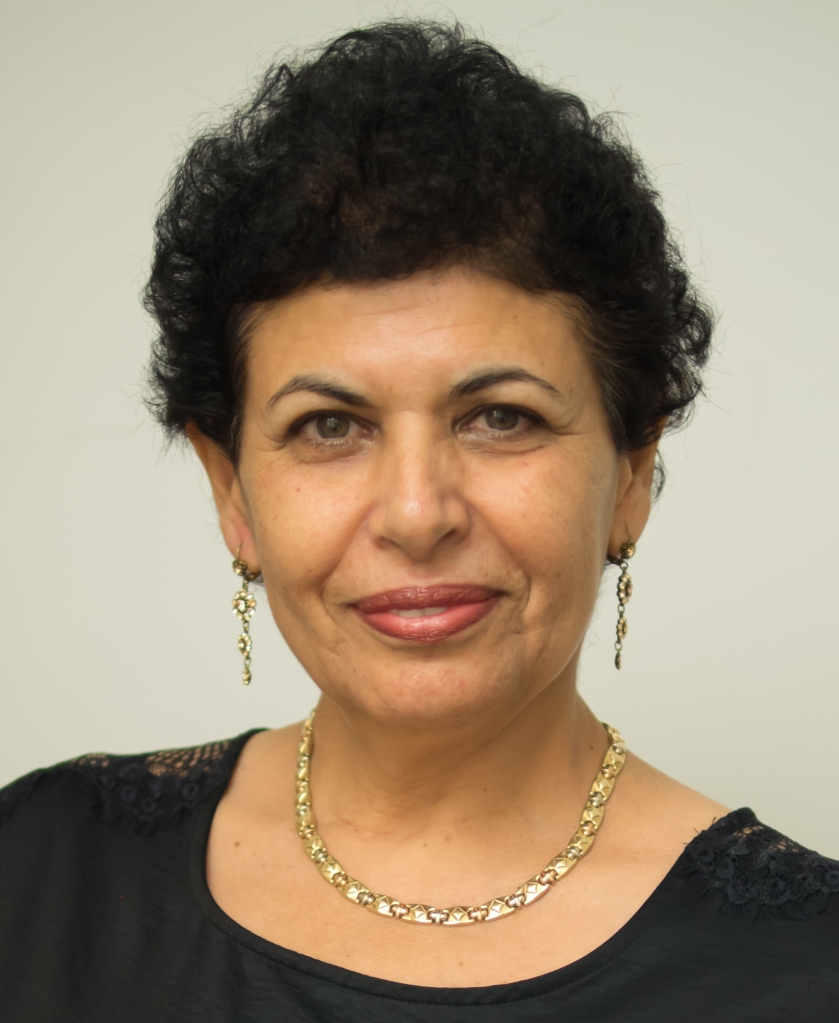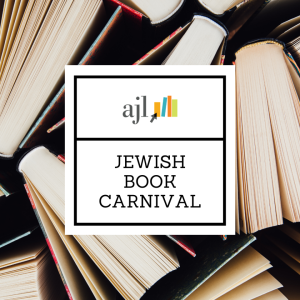Hello again! Today, we are in for a special treat. Renown Israeli author, Sara Aharoni joins us in this series of Authors’ Interviews. Sara has been a teacher, an educator and has worked as a school principal for 20 years. She also spent four years in Lima, Peru as an educational envoy of the Jewish Agency.

Together with her husband, Meir Aharoni, Sara wrote, edited and published a series of books about Israel, including six in English. She has also published six children’s books. Her third novel, Mrs. Rothschild’s Love (the English title is The First Mrs. Rothschild), went instantly to the top of the Israeli bestseller list. Aharoni received the Steimatzky Prize for Best-Selling Book of the Year.
I have read this work and found it inspiring and thought-provoking. As you all know by now, I am fascinated with this time period. The Rothschilds, the Montefiores…what these family were able to accomplish under that level of persecution and oppression is mind boggling! Let’s find out more.
Host: Welcome Sara. You have done a remarkable job bringing this family to life for me. Kol hakavod! Please set the stage for this project. How did it all come about?
Guest: Thank you for inviting me, Mirta. I’m excited to be here. As an Israeli, born and living in Israel, I write my historical novels in Hebrew, and I am happy that my book, The First Mrs. Rothschild, has been translated into English and distributed by Amazon Crossing. It presents the life story of the Rothschild family in the Judengasse (the Alley of the Jews) in Frankfurt, who rose from extreme poverty to a global economic empire. The story takes place between the years of 1770 to 1849; from the marriage of Gutle to Meir Amschel Rothschild, until her death at the age of 96. The idea of writing this book was born from my visit to the agricultural settlements in Israel under the patronage of Baron Edmond de Rothschild, the well-known philanthropist. The visit was intense and aroused in me the desire to get to know him more deeply. I started to read books about Rothschild, and the more I read, the more I felt like writing a novel about him. I continued reading and reached the roots of the Baron, his grandfather, Meir Amschel (or Mayer Anshel, it’s the same) Rothschild, who lived in the Jewish ghetto in Frankfurt and raised the family from a state of dire poverty to a great wealth. This inspired me to write the novel about the founder of the Rothschild family.
Host: I certainly can understand being intrigued by the family’s founder; however, your book is written through the eyes of his wife, Gutle. Correct?
Guest: Right. I wanted to place the wife in the center of the scene. During my research I discovered that historians wrote a lot about the founder and his five children, and very little about his wife, Gutle, and her daughters. I regretted that. I was curious to know Gutle’s character. So, I continued to read and find details about Gutle. Every piece of information I found was like a diamond. I collected all the details into a chart which turned into a puzzle I could piece together to discover her character. I found a very special woman: a modest, intelligent woman with a big heart, giving, helping each person. Her kitchen was a shelter. Anyone who wanted to pour out his heart to someone, would come to her kitchen. She knew her place as a woman (it was the 18th century), knew when to keep quiet and when to say what she thinks. She had a wise heart and great understanding. For example, she used to send shirts from Judengasse to her son Nathan in London. She knew that Nathan was a very rich man and could buy expensive shirts in London, so why did she send him shirts? Because she was worried her son was changed. He made contact with the high society and showed signs of vanity. She didn’t want him to forget where he came from. She knew that when a shirt from Judengasse would touch his skin–he would never forget where he came from.
Her modesty is self-evident. She never left the ghetto even though her children were already living in palaces and offered her rooms there. Gutle loved Meir Amshel and supported him all along. Despite his strength and energy, he needed his wife behind him. This woman captivated me, and I decided to give her a stage and pass on the family story through her.
Host: That was what had me glued to the page — Gutle’s story and her views on life, family and their place in the world. Why do you think Jewish Historical Fiction is an important, stand-alone, genre?
Guest: As an ancient people thousands of years old that spread across the globe, we have become rich in a wide range of Jewish cultures – each diaspora and its Jewish culture: culture, language and creativity. Our Jewish history is rich in events, figures, upheavals, ups and downs – great achievements in the face of terrible tragedies. All of these are immortalized in the books of history, the first of which is of course the Bible that unfolds the history of our people and is a central focus of Jewish culture for generations. I see the historical novel as an important means of combining literary fiction with historical reality, which gives the reader an opportunity to become acquainted with the world of the Jews in a fascinating way. I sometimes hear history teachers say that the historical novel can bring students closer to history lessons. I consider it important that future generations become acquainted with Jewish history, and the historical novel is an integral part of the means of realizing this.
Host: And how would you differentiate a history book from a historical novel?
Guest: The fiction in the historical novel is adapted to the historical facts and fills in the gaps, the same gaps that the history books skip over, such as the moves of the mind, descriptions of emotions and thoughts, and the influence of these on the chain of events. For example, regarding my book, The First Mrs. Rothschild, historical sources indicate that Gutle, the wife of the founder, Meir Amshel Rothschild, gave birth to 19 children, of whom 10 survived. I must not change this basic fact. But I think as a woman, as a mother, as a writer – a mother who loses one baby feels she has lost her world. Gutle lost 9 children. The historian does not dwell on the mental state of the grieving mother. His role is to describe the sequence of events. In the historical novel I was given the opportunity to fill in the blanks and give a broad canvas to the loss. The historical novel develops in the reader an interest in the character and period. In The First Mrs. Rothschild, the historical background is woven throughout the novel: the Napoleonic Wars, the French Revolution, the Industrial Revolution, the Damascus plot. Quite a few readers turn after reading the historical novel to other sources to enrich their knowledge of the period.
Host: As an Israeli author, do you have any thoughts on what the Diaspora considers a Jewish book? By that I mean, Israel and the Jewish community at large, is a diverse and unique culture, yet—here in America—we tend to focus on two narratives: The Holocaust and Fiddler on the Roof-type themes. There is obviously so much more to talk (and read) about.
Guest: Within the Jewish story, Jewish culture is intertwined with the holidays and customs, such as Shabbat. It is not there as a title and is not dominant in the story, but is a natural part of the characters’ lifestyle and general atmosphere. It is a culture that accompanies us throughout history, it has created for us the special identity as a people, and it must be given expression. It is part of the respect for the faith and the Jewish people.
Host: Sara, tell us about your first book, Saltanat’s Love. I understand this was the impetus for your career as a historical fiction novelist.
Guest: My first novel was based on my mother’s life as a Jewish girl growing up in Iran. Through the story the reader is introduced to the lives and culture of Iranian Jews in the 30’s and 40’s of the 20th century. How did it happen? On a trip together with my mother in Europe, she told me the story of her life. I’ve already heard her story with my brothers when we were little, but in those days, it was as if my mother took a strainer with small holes and only part of reality was heard. That is, we were spared all sensitive parts. During that trip in Europe, I was already an adult and myself a mother of children. Mother allowed herself to throw away the sieve and tell me the whole story. I heard the story and remembered that when we were little, Mother used to say: ” All I went through would make a book.” And now, when I hear the whole story, including the sensitive parts, I understand that this is a story to be written. I decided to write the book as a novel. The great and unexpected success of my debut novel made me decide to continue writing novels, or rather, historical novels.
Host: Have you visited any of the locations you have written about?
Guest: After reading so much books, letters and documents, I felt a need to physically get to the places where the Rothschilds lived. The first place I wanted to reach was Judengasse. But I knew I had no chance, because at the end of the World War II, the United States bombed Frankfurt, and the street was completely destroyed. But where the Rothschilds’ house once stood, they set up a museum – the Judengasse Museum. The visit to the museum left a strong impression on me. I saw the miniature structure of the street with the wooden houses, the reconstruction of a section of the street, including a ritual bath, the attire and the accessories they used, and the large pictures hanging on the walls. I will describe to you one of the pictures called “The Jewish Sow.” It was a relief placed above the gate of the city of Frankfurt and was in front of the passers-by every day. The picture shows a large sow on which a rabbi is riding. The rebbe raises the tail of the sow so that another rabbi will eat from its feces. There are Jewish children sucking from her nipples, and on the side, the devil stands and watches with pleasure.
I saw this picture in many books I read. But in the museum, I stood frozen in front of the big picture for a long time that I cannot measure, but long enough for me, to express the novel in this picture. On the journey to the Rothschilds I also reached London and Paris.
Host: I can well imagine being paralyzed standing in front of such an atrocity. The cruelty of being forced to live under such conditions, of being constantly reminded of what the outside world thought of you and your people…it is a testament to their faith and perseverance that the Rothschilds, and others of that generation, were able to overcome such prejudice and persecution. You describe these daily events so well. I was transported. I love this quote: “Dignity is a powerful thing. We shall use it to break through the walls of the ghetto and set ourselves free.” Do you have a favorite scene from the book?
Guest: My favorite scene is Gutle’s visit with her mother in the Forbidden Public Park. Every leaf, butterfly, branch and shrub is a world in its entirety for someone who has dreamed of coming to the garden all her life but the garden was on the list of prohibitions imposed on her and the Jews of Frankfurt. This scene makes it possible to raise the difficult reflections regarding the injustice done to the Jews. Here is excerpt:
“Look, Gutaleh, how pretty this garden is.”
Mama tightened her grip. Her eyes sparkled. I looked at the glory of the garden. A carpet of beauty spread before me, as if to say, “Here I am! And where have you been this whole time?” My eyes took in the sights. All the wonders of the world could not compare to the splendor of this place. I felt I had to hurry up and drink in this luscious view.
Suddenly, I felt sad. The thought of all we had been deprived of until now filled me, pushing away the brilliance before me, threatening to take hold of my mind. Our people’s cruel fate was knocking on the door to my heart. I watched my mother, her burning eyes. She was living the moment, leaving the past behind. I must be like her, enjoy these moments to capacity. I mustn’t wallow in darkness. I must regain my senses. At that moment, I recognized that other smell. It was the aroma of freedom. Freedom smells intoxicating, superior to all other scents. I would always remember my first whiff of freedom.
Host: That was a powerful scene! Tell us, are you working on something now?
Guest: I am in an advanced stage of writing the next historical novel, about a Jewish historical figure. I hope it will also be translated into English.
Host: Thank you for joining us today, Sara. It was such a treat! Is there anything else you’d like to add?
Guest: Thank you very much for interviewing me. I’ve enjoyed sharing this time with you. If you want more information about me or my book, here is the link to Amazon:
and the link to the Heroine’s Journey: https://theheroinejourney2016.wordpress.com/2020/10/17/the-heroines-journey-of-sara-aharoni/
facebook: sara aharoni




Great interview. Love this author and loved this book.
LikeLiked by 1 person
Thanks Stacey! I’m glad you enjoyed the post. This book was amazing.
LikeLike
Thanks for this interview! The book sounds amazing, and I loved reading about the author’s take on historical fiction and Jewish history.
LikeLiked by 1 person
Thanks for stopping by, Christina! I’m so happy that you enjoyed the post. This book was unique and inspiring and I was delighted to include the author in the series. Be sure to stay tuned for future posts and reveals.
LikeLiked by 1 person